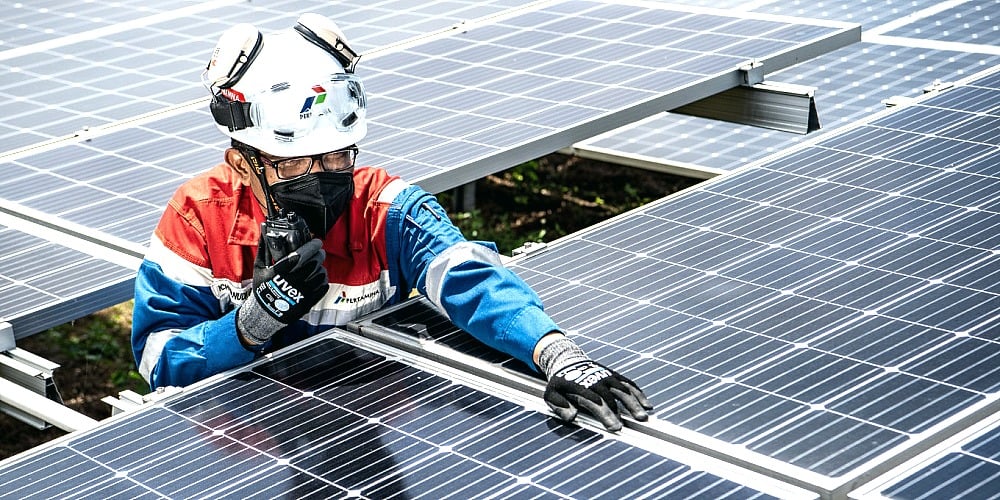It comes as no surprise that the recent Group of 20 major economies meeting on clean energy in India could not agree on phasing out fossil fuel use.
There has been a global U-turn on coal since the Russia-Ukraine war, which has landed Europe in the middle of an energy crisis.
Earlier in February, European Union foreign ministers also failed to agree on a call for a global phase-out of unabated fossil fuel use, which is a part of the bloc’s negotiating position in the United Nations Climate Conference (COP28) in November of this year.
The failure to reach a consensus would prevent the delegates from formally adopting the text endorsing the fossil fuel phase-out during the climate summit.
But it should not normalize the sluggish moves of governments to show greater commitment to making significant cuts in fossil fuel use.
And as a former G20 host that started the initiative last year, Indonesia’s rejection of a proposal to triple renewable energy capacity, the main proposal in the India meeting, may demonstrate inconsistency and a waning commitment to the climate fight.
In its Nationally Determined Contributions (NDC) document to the UNFCCC, Indonesia has targeted reducing its carbon emissions by 31.9 percent independently, or by 43.2 percent with international assistance, by 2030.
The government has also announced a plan to eliminate coal by 2056 and achieve net-zero emissions by 2060.
However, in the past five years, the share of coal-based energy increased by almost 10 percent, reaching 67.21 percent of the national energy mix in 2022, while at the same time renewable energy only grew by 1 percent to 14.11 percent.

Indonesia can use some help in expanding its renewable energy. This is where private financing can play a greater role.
There was much hope for the Just Energy Transition Partnership (JETP) at the end of Indonesia’s G20 presidency last year.
In the JETP agreement, an alliance of governments and the private sector from developed countries promised to mobilize an initial US$20 billion in public and private financing to decarbonize Indonesia’s energy sector.
Nothing has come of this pledge so far.
While the Indonesian government has complained about the sluggish funding disbursement from JETP, donor countries are waiting for Indonesia to create a conducive environment in which various energy-transition programs can be implemented.
The government is very keen to link JETP to its electric vehicle (EV) ambitions, therefore, it hopes to link the funding to providing subsidies and incentives for people to buy EVs.
But on the other front, for instance, on improving regulations to encourage investments in solar, geothermal and other types of renewable energy, the government has not gone very far.
The government seems very reluctant to ease its grip on the electricity sector through state-owned electricity company PT PLN, rendering reforms, let alone improvements in the investment climate in the electricity sector.
In a way, Indonesia’s rejection of a greater commitment to renewable energy expansion seems understandable.
Why would the government make any more pledges as it is making snail’s pace in developing its renewable energy sector at home?
Moreover, funding from developed countries has been notoriously unreliable. Let us not forget about the Green Climate Fund, a UN framework established in 2009 in which rich nations pledged to deliver $100 billion each year to help poorer countries in the climate fight. They never met the target.
In 2020, the Organization for Economic Co-operation and Development (OECD) recorded that the developed countries gathered $83.3 billion, which was well below the target.
Now it all seems like the classic chicken-and-egg problem. Indonesia surely should work harder on its energy transition.
It may begin by reforming regulations for every renewable energy market, from solar to geothermal, and really address the problems that hinder each energy source’s development.
If Indonesia still fails to do so, what is the use of forcing the government to make another promise, which we know that it will not be able to keep?
ADVERTISEMENT
ADVERTISEMENT








































